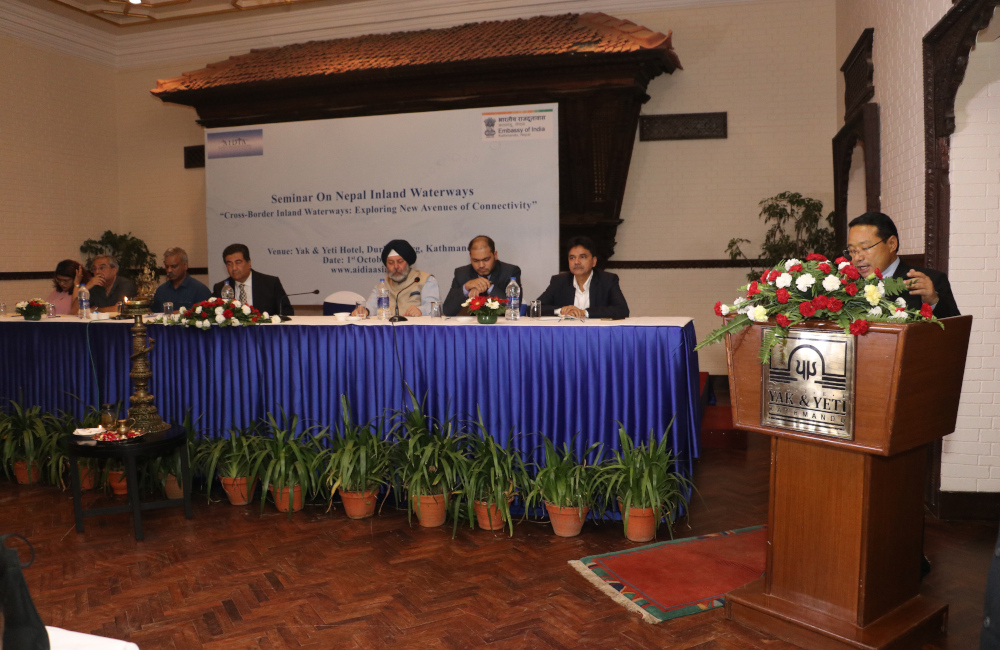2018-10-02

Energy Minister Barsha Man Pun has said the proposed inland waterways connecting Nepal with India will have a profound impact on the development of the country.
Addressing a seminar on Nepal Inland Waterways in the Capital on Monday, Pun hailed the decision of the two neighbours to explore possibilities of developing connectivity as a land mark decision.
The waterways will stimulate industrial development in the country and benefit both the nations, Pun said.
“Waterway is a cheap mode of transportation. It is also the safest, environment friendly and the most reliable mode of transportation,” the minister said, adding that Nepal and India will now have to focus on technical, legal and institutional aspects of the project through a bilateral mechanism.
Nepal and India had agreed to develop inland waterways from Indian ports to Nepali border during Prime Minister KP Sharma Oli’s state visit to India in April. After a recent visit to India, a technical team comprising government officials have concluded that the feasibility study for developing inland waterways from Indian sea ports to the Nepal border via Koshi and Narayani rivers will be completed by November. The feasibility report would lead to further study on the possibility of movement of cargo ships from Indian sea ports to the Nepal border via the two biggest rivers of Nepal.
Indian Ambassador to Nepal Manjeev Singh Puri said that the waterways in Nepal could be done quickly. According to him, vessels can commute to Hanuman Nagar in Saptari district to ship in products to and from India and make further transportation arrangements in Nepal through the East-West Highway. “The Koshi river comprises of sufficient water in most of the months throughout a year to allow vessels ferry till Hanuman Nagar,” Puri said.
The Indian envoy added that the Narayani river has potential for quick realisation of bringing containerised traffic from India to Chitwan in Nepal.
Madhav Belbase, joint secretary at the Water and Energy Commission Secretariat, stressed the need of making necessary amendments to the Trade and Transit Treaty to accommodate the Inland Waterways transportation. “A techno-economic feasibility study needs to be carried out in cooperation with India,” Belbase said. He termed large quantities of water diversion for irrigation as one of the major challenges facing inland waterways in Nepal. “We need to make irrigation mechanism efficient and divert more water in our rivers,” he said.
Belbase also informed that it would not be difficult to develop navigation till Das Dhunga, Chitwan. Participants in the event added that agreement between the two nations can also help Nepal gain direct access to Bangladesh via waterways.
News published onThe Kathmandu Post